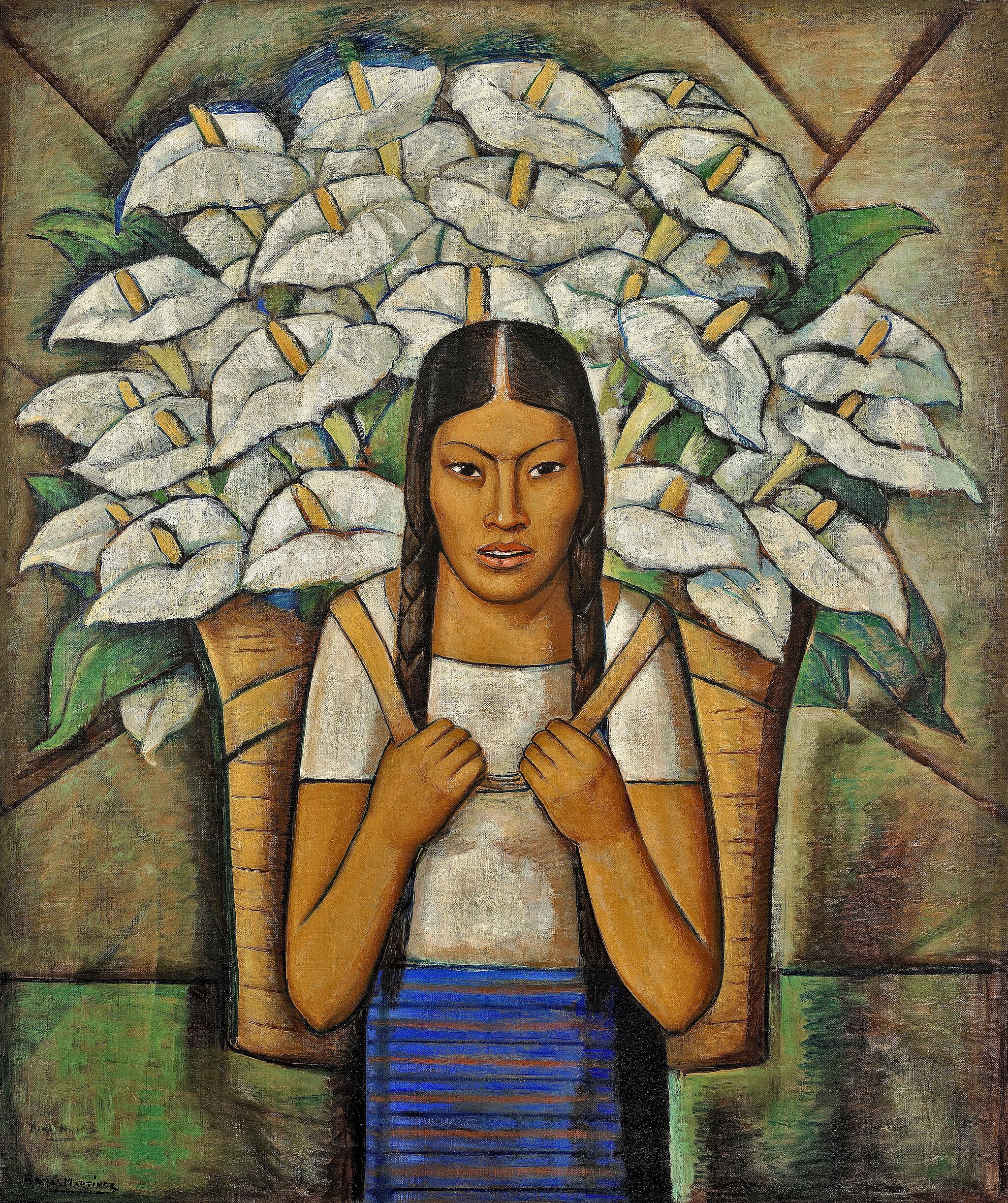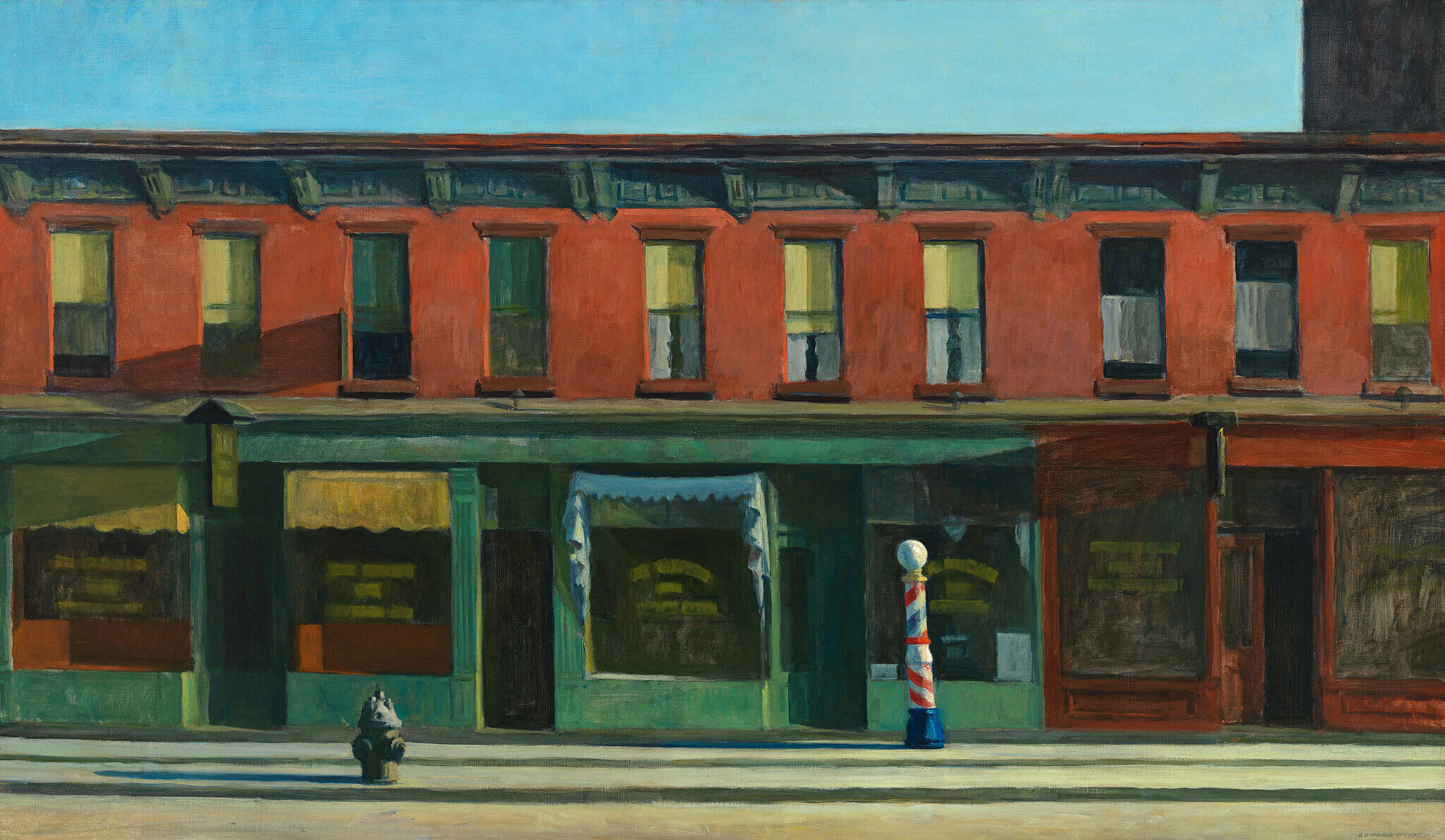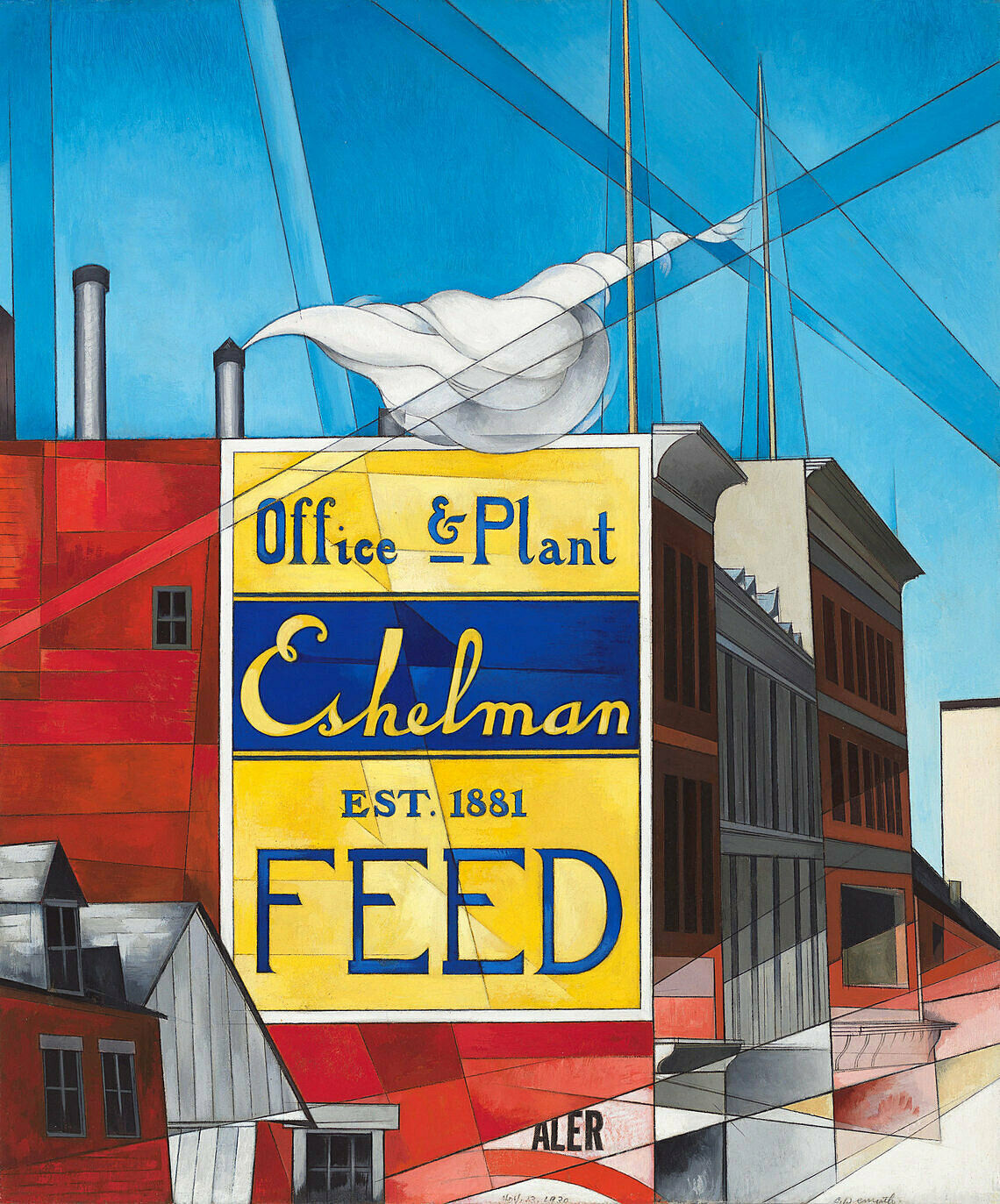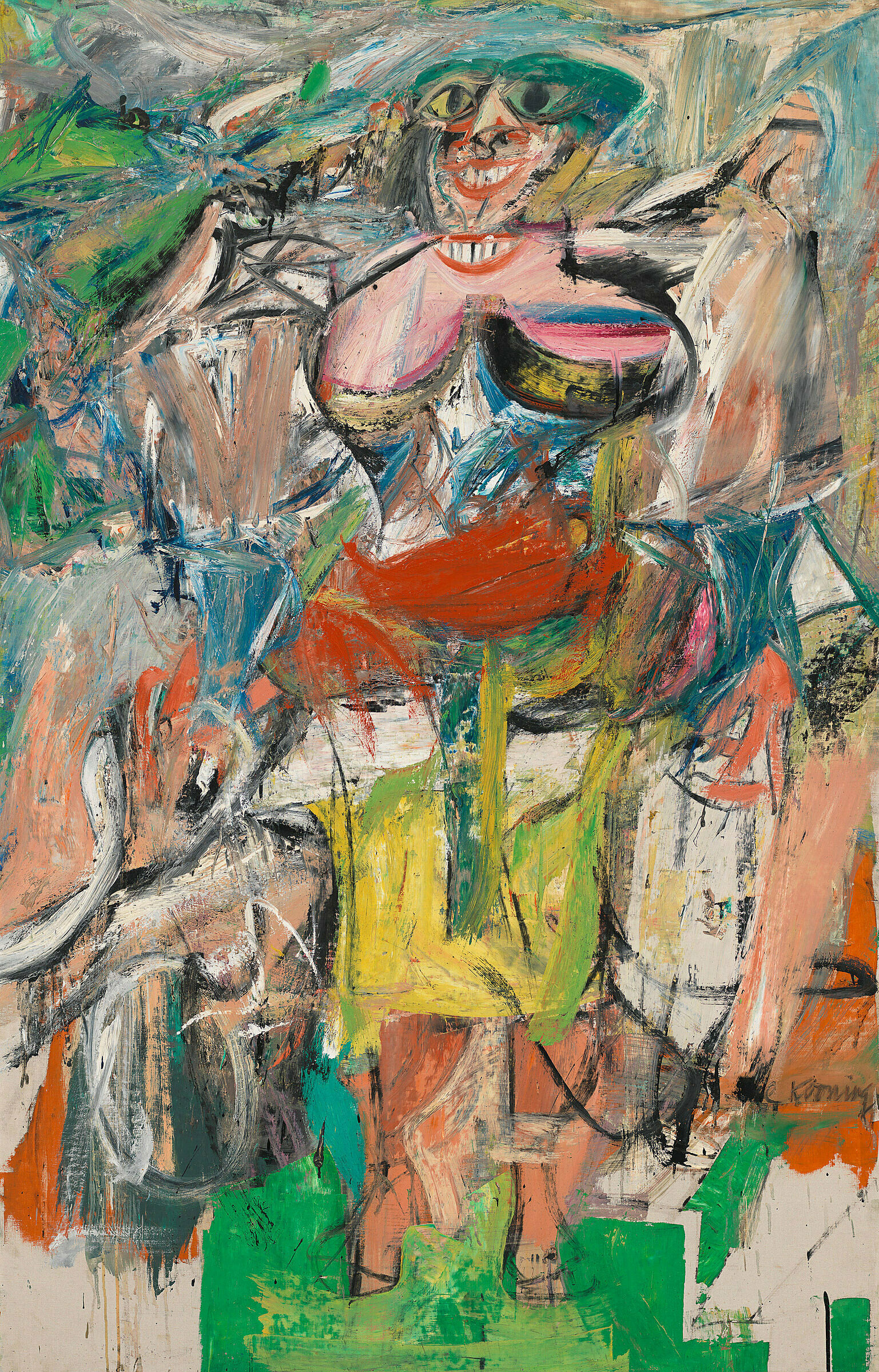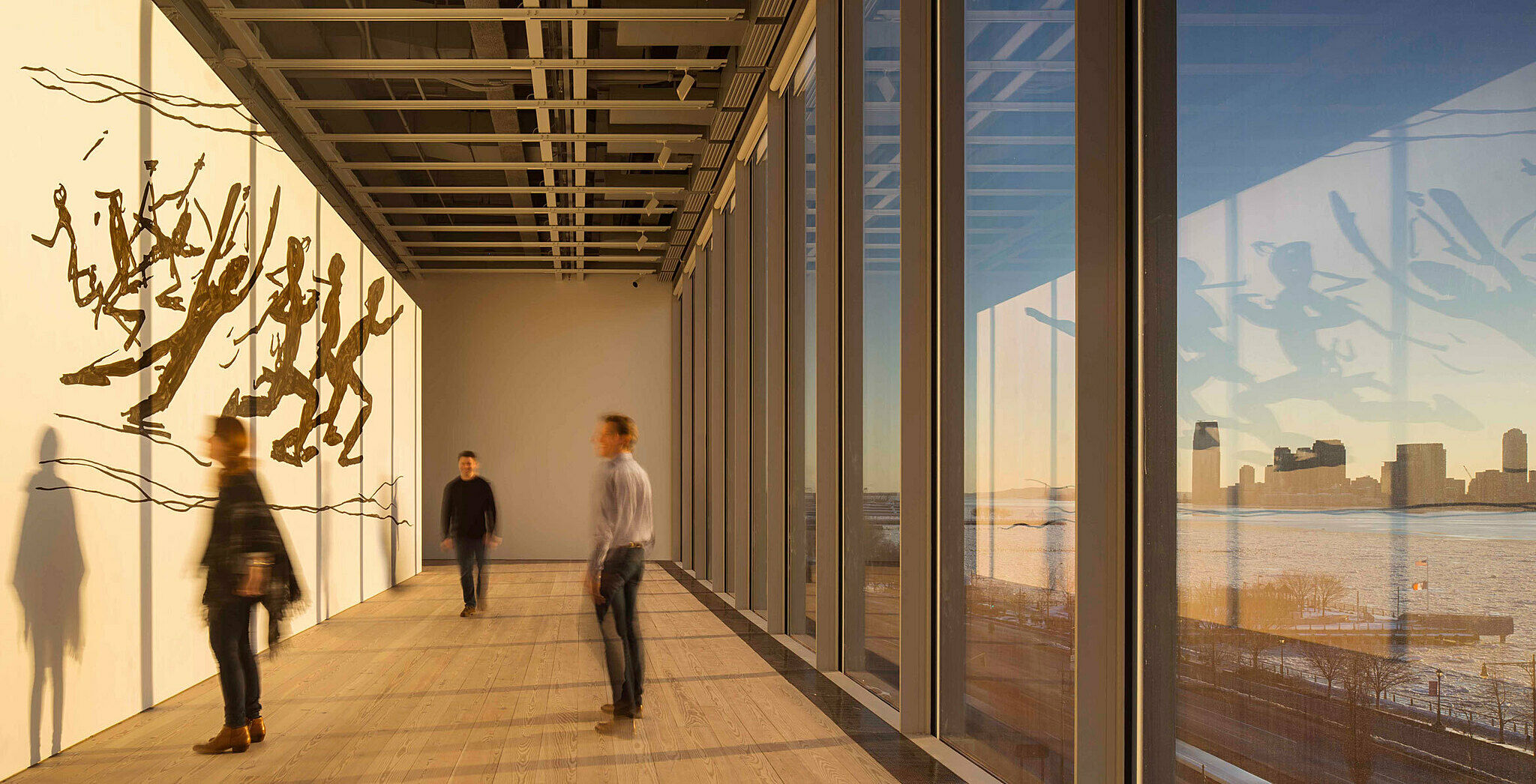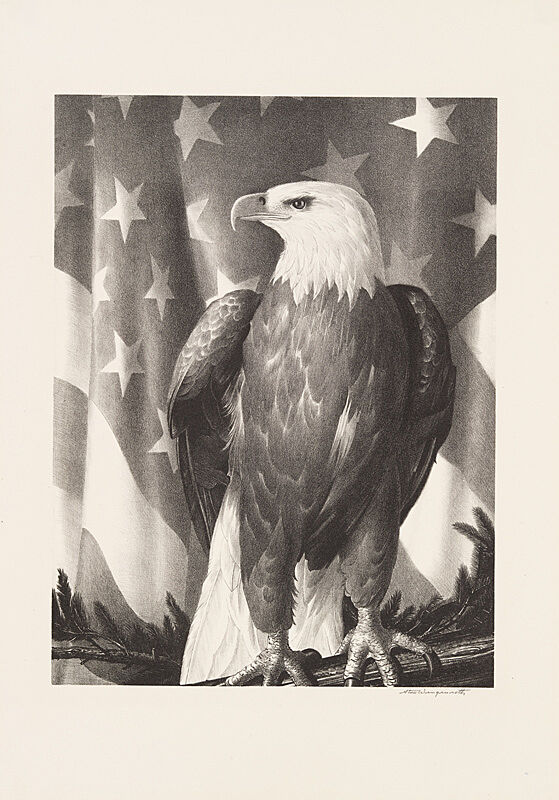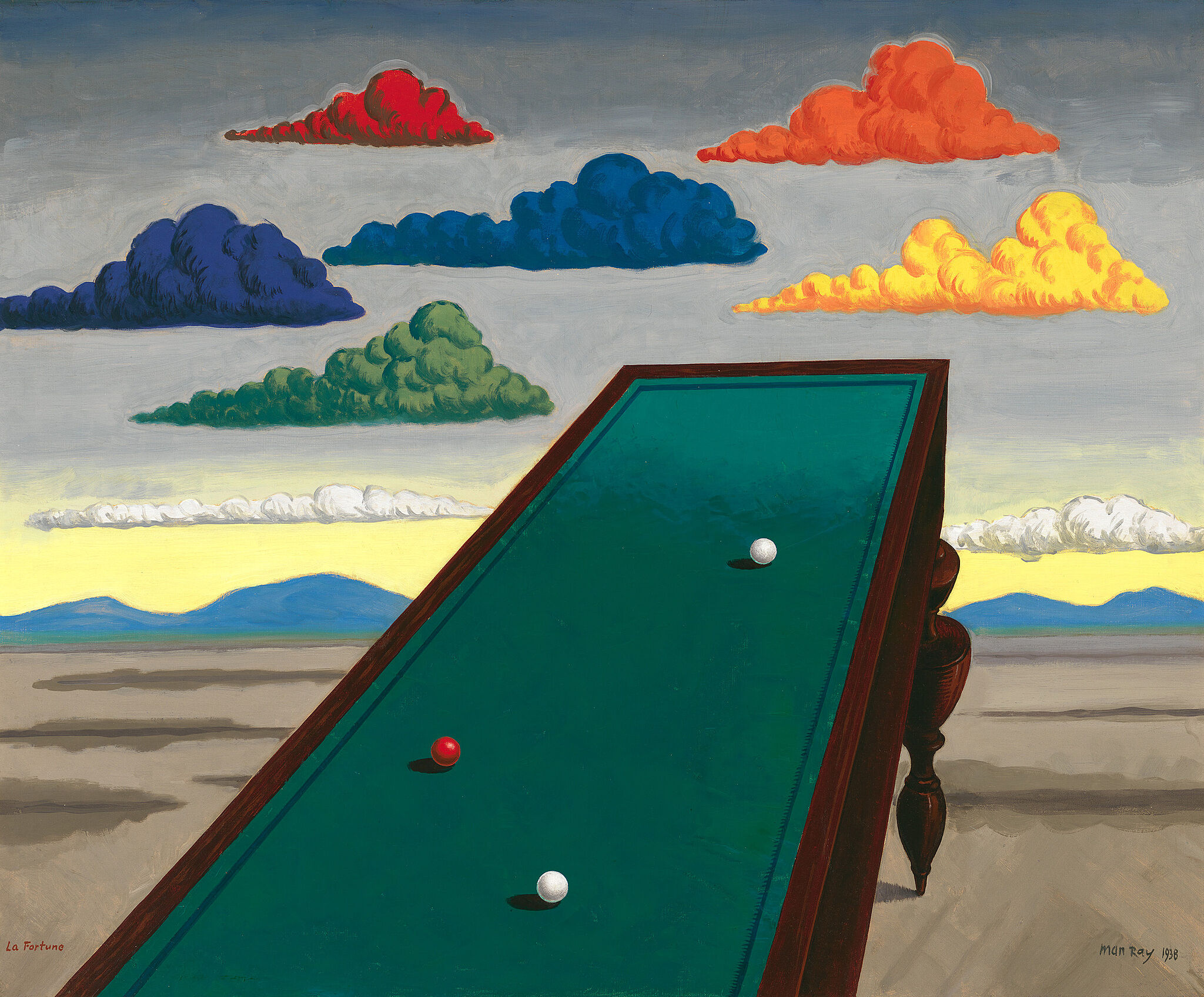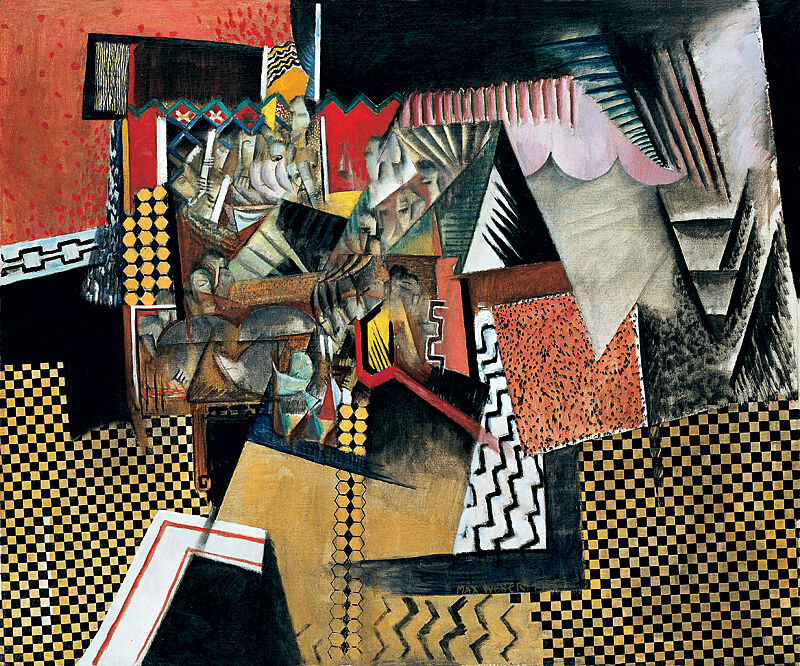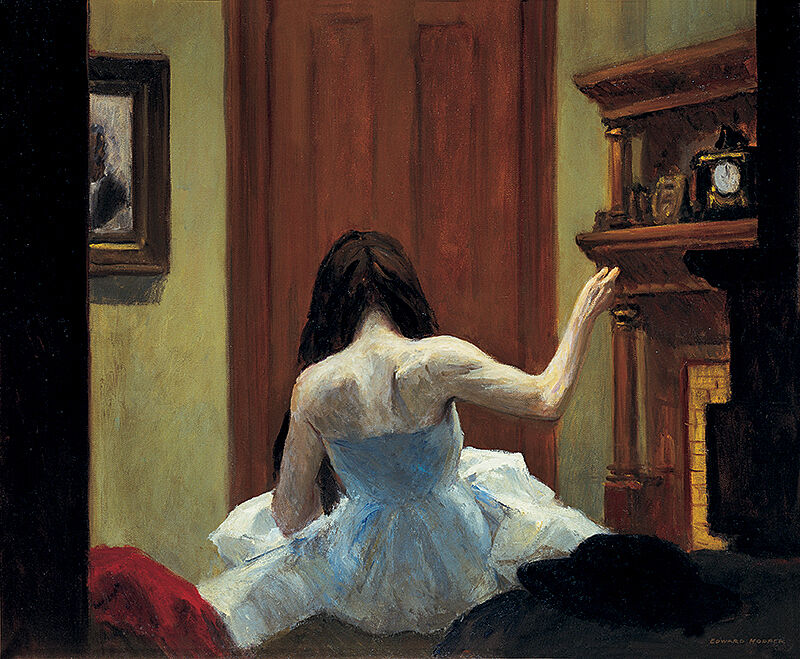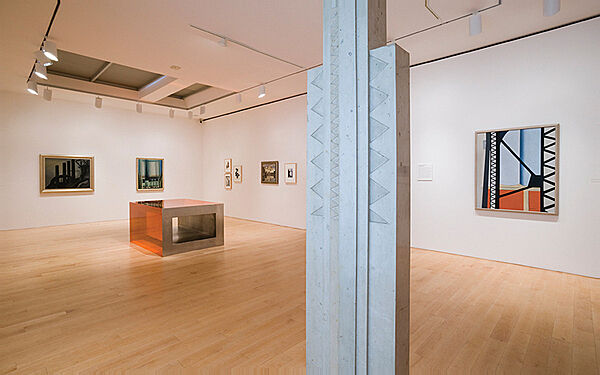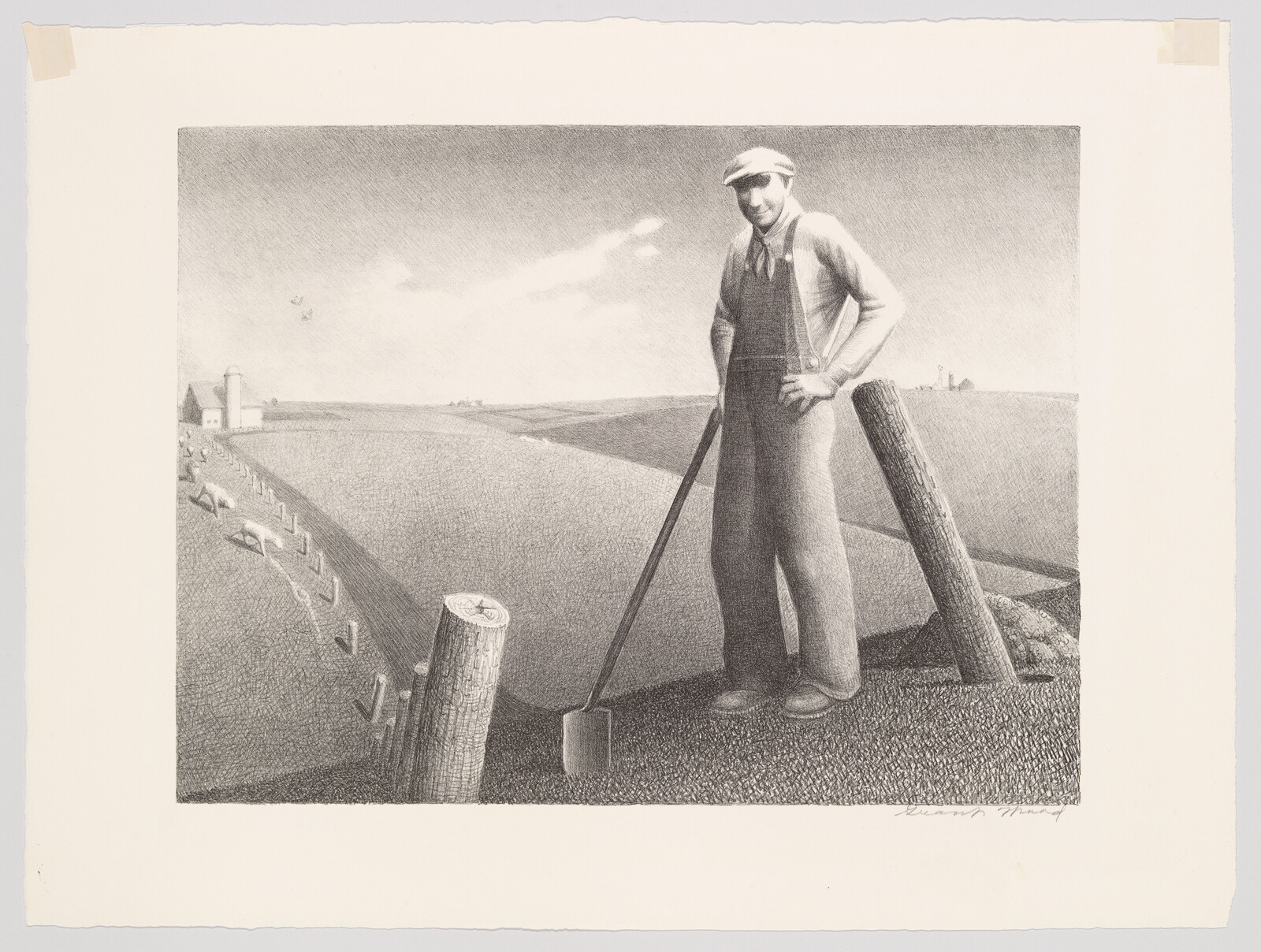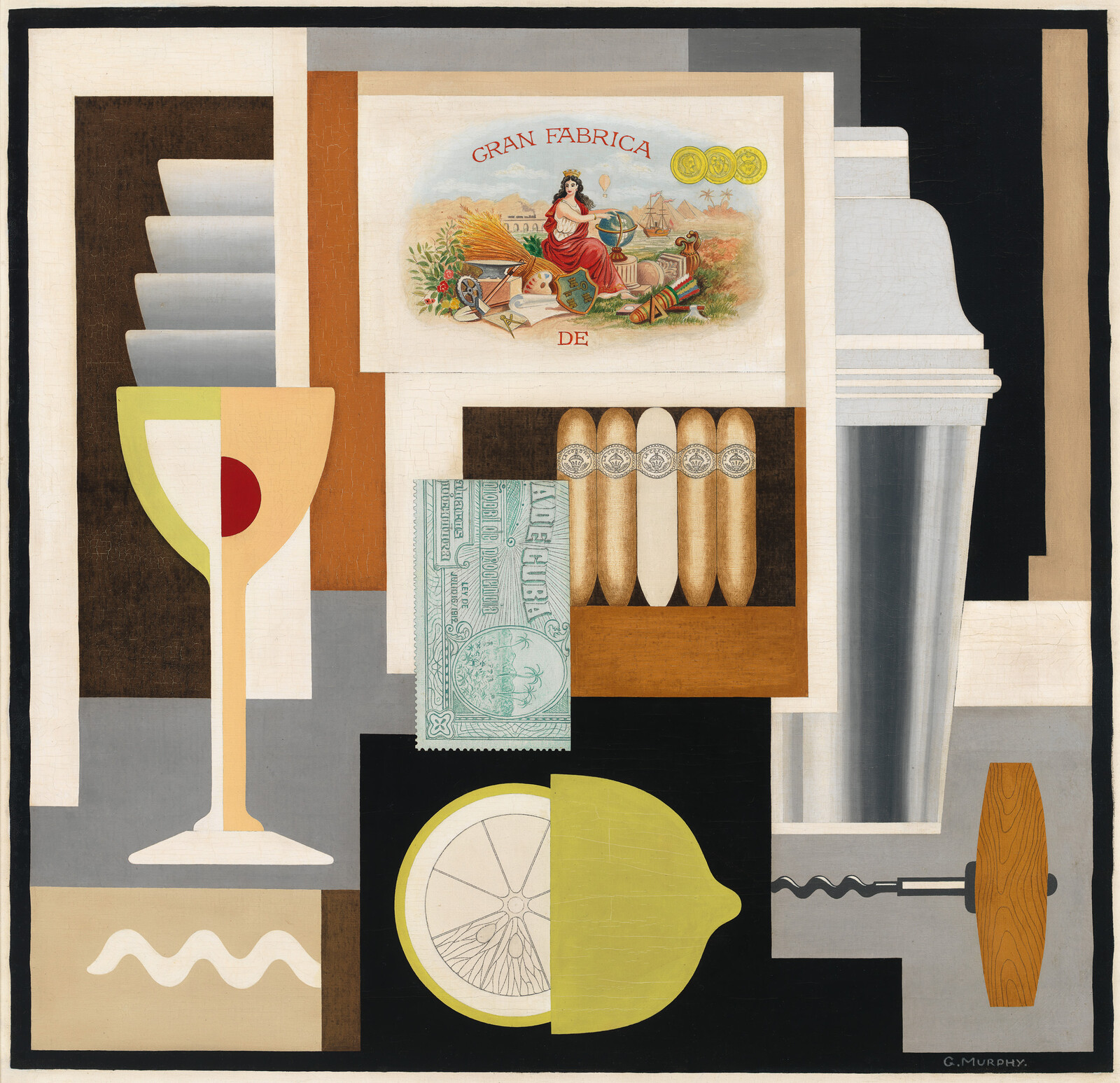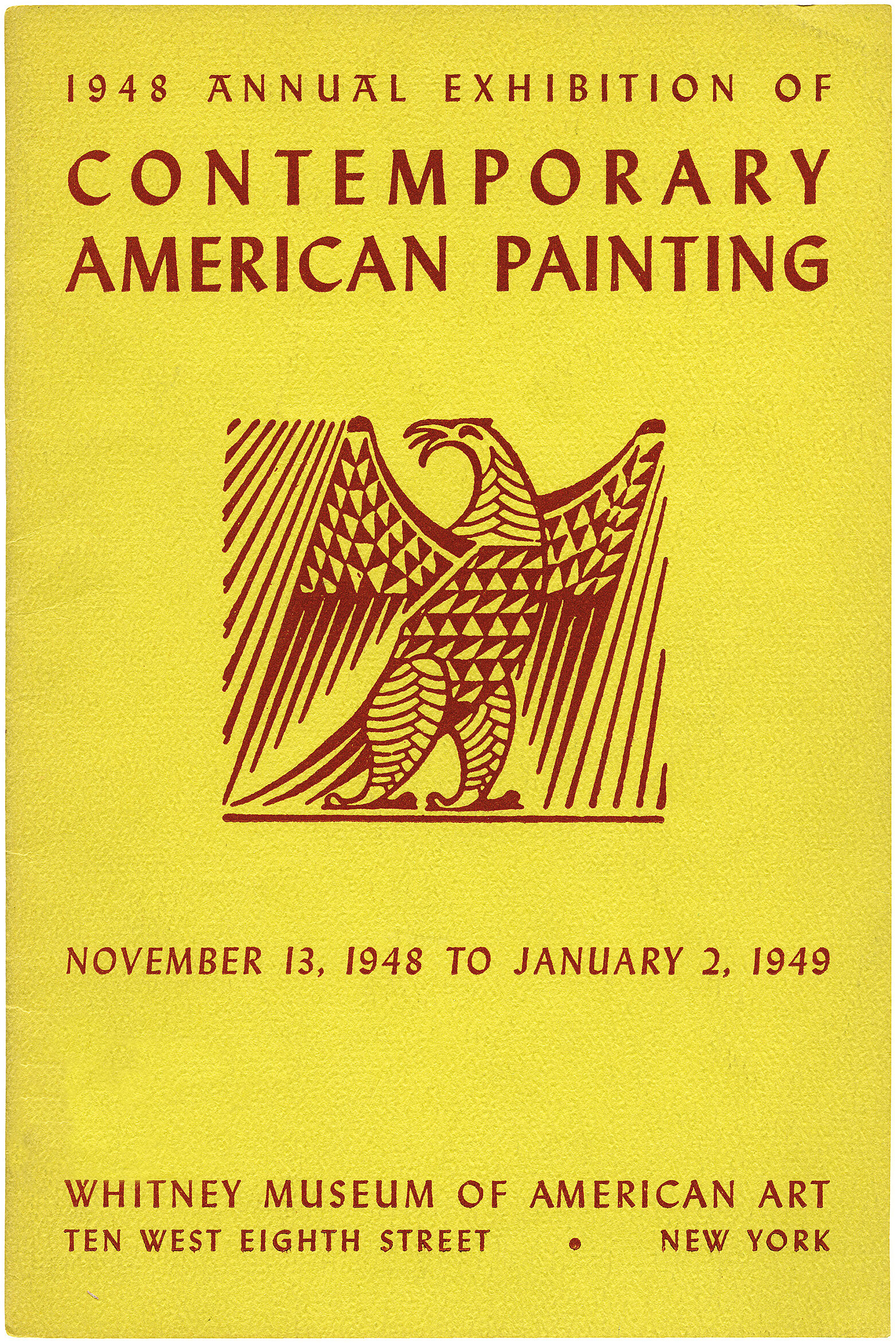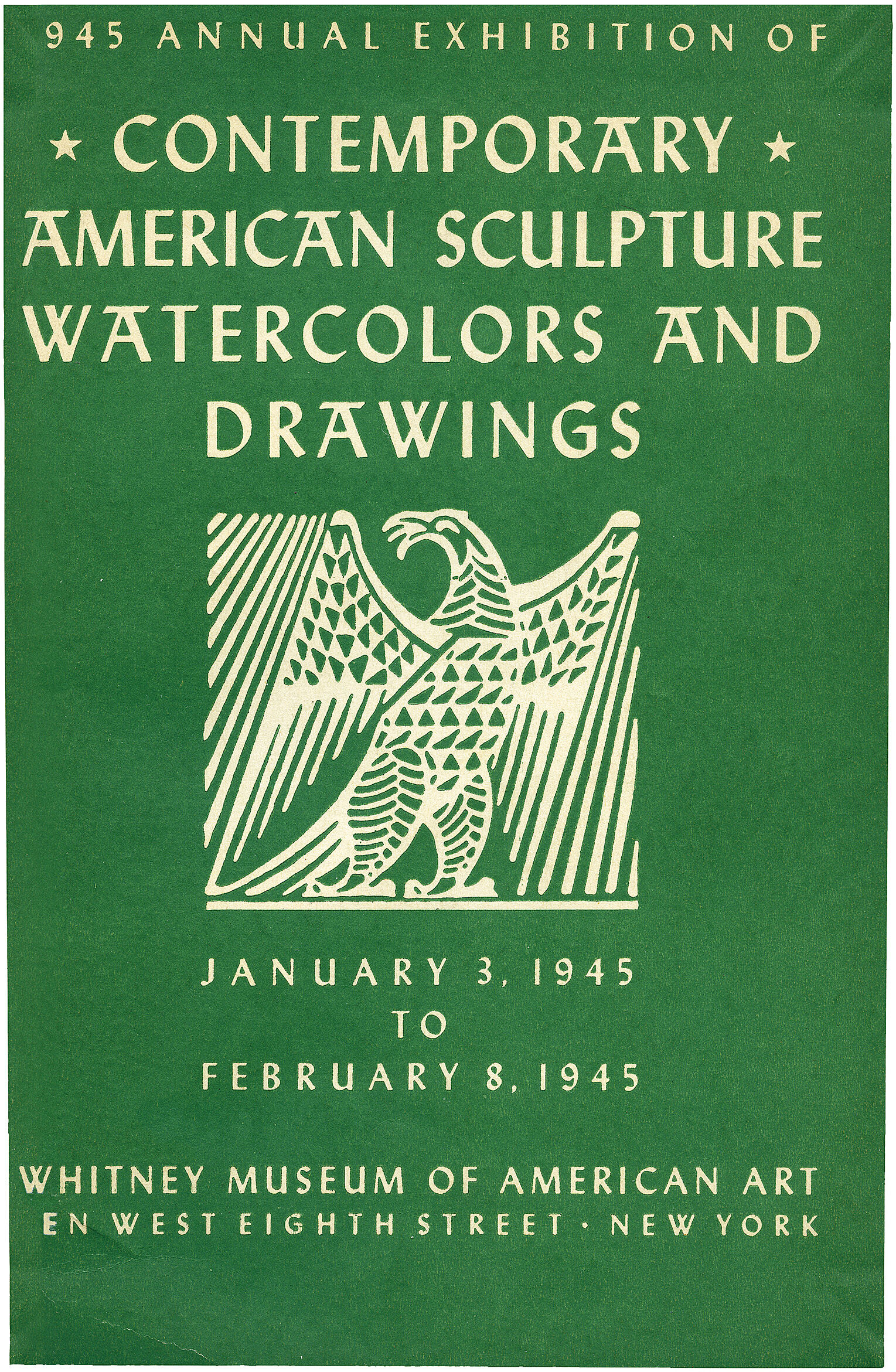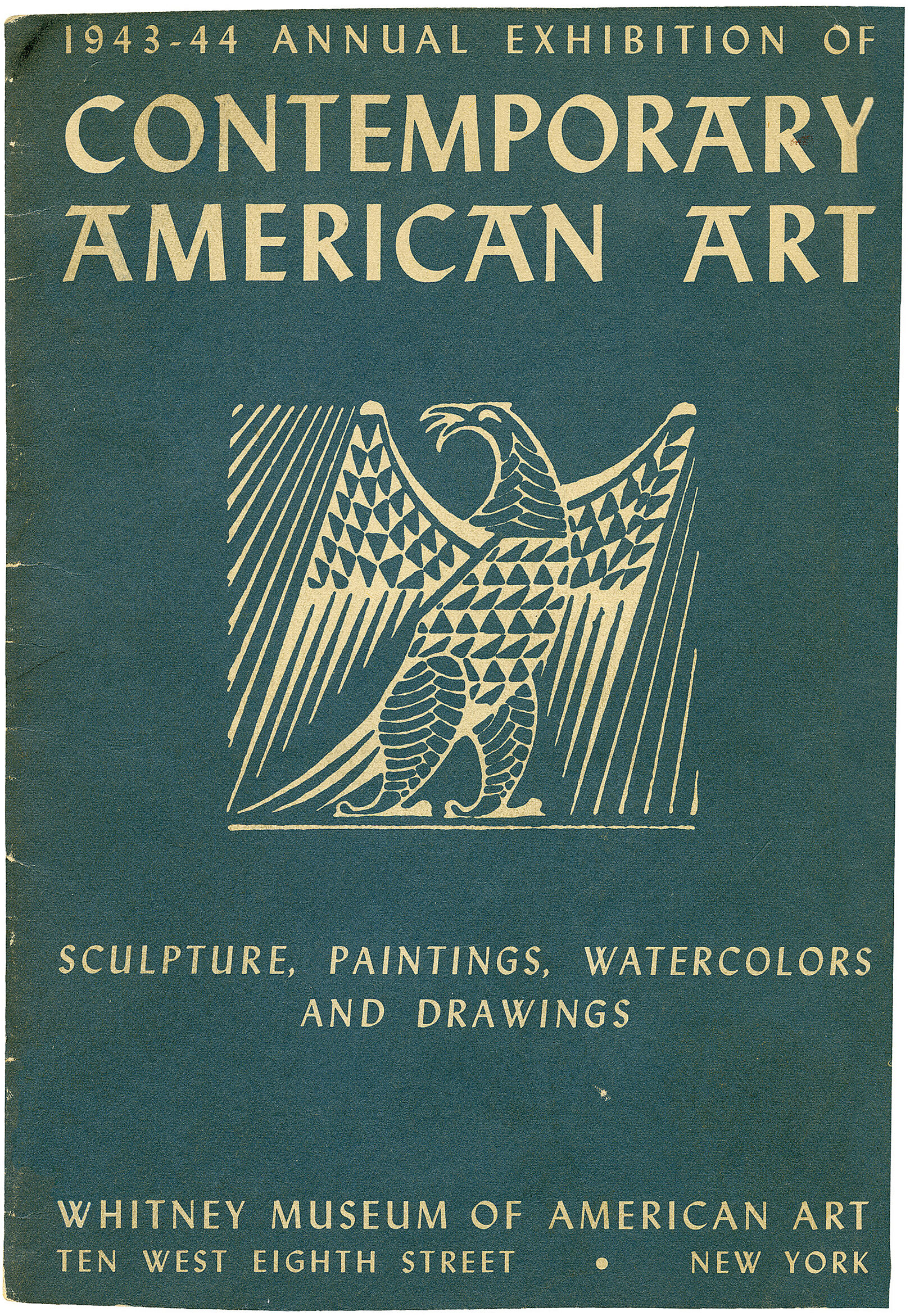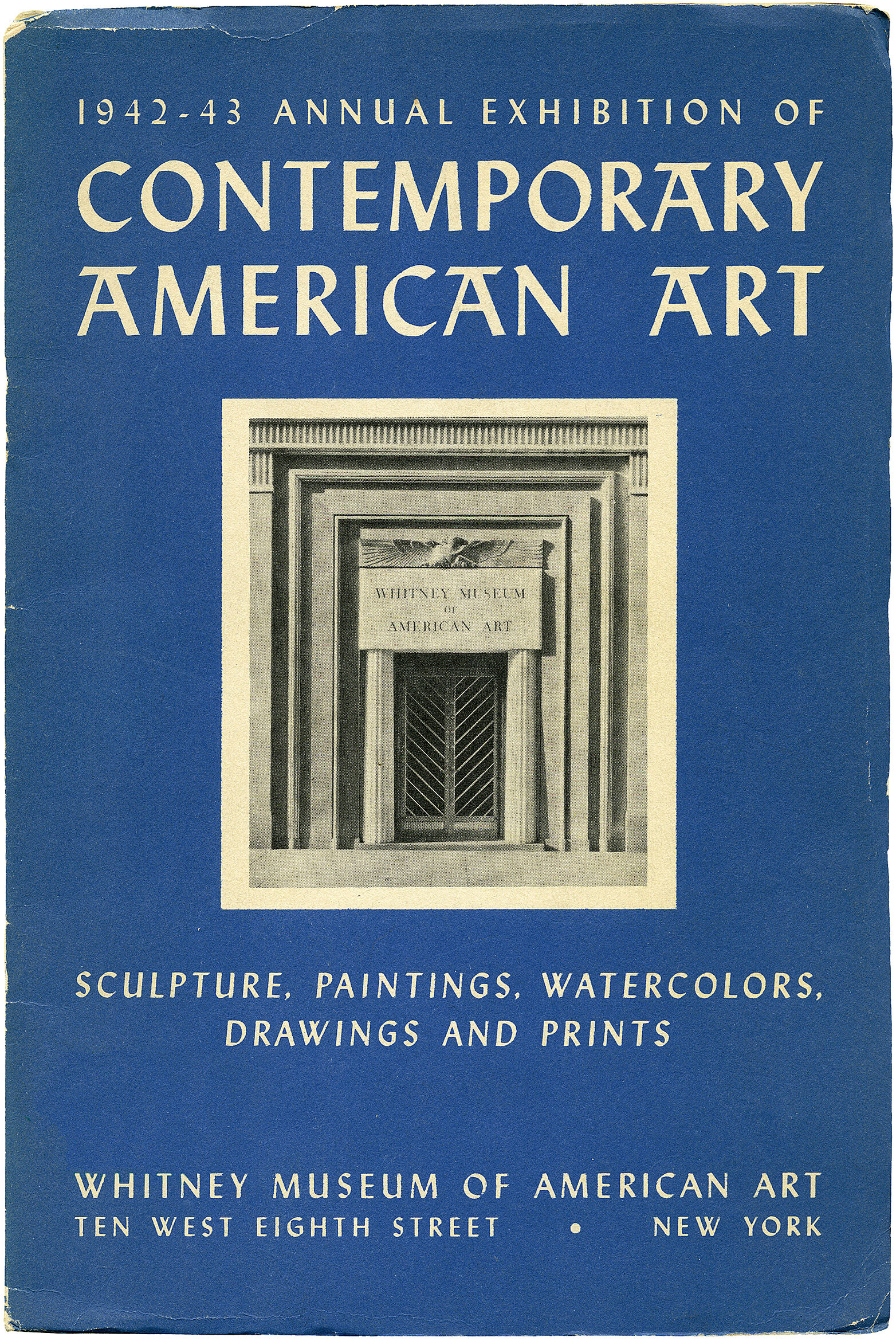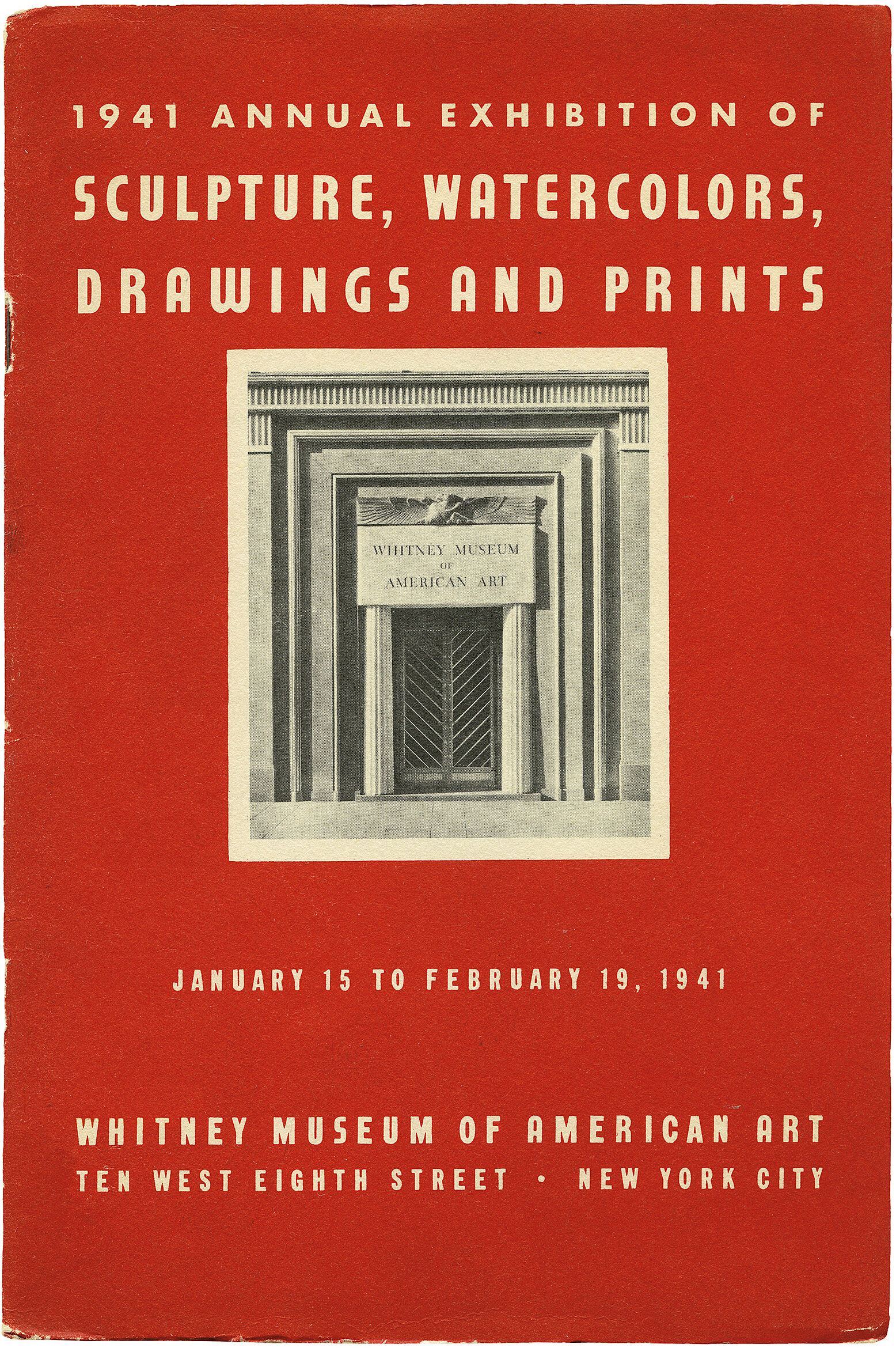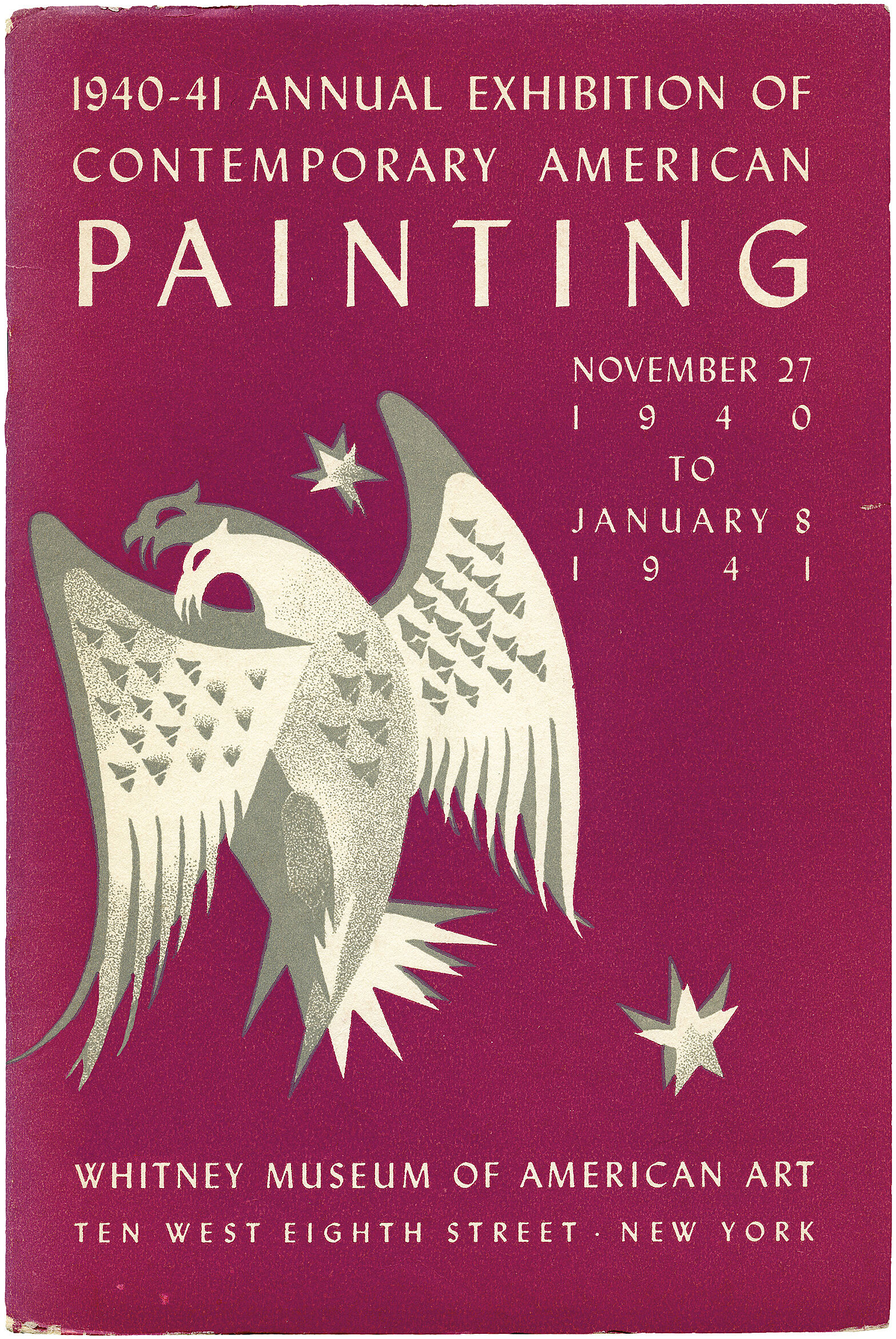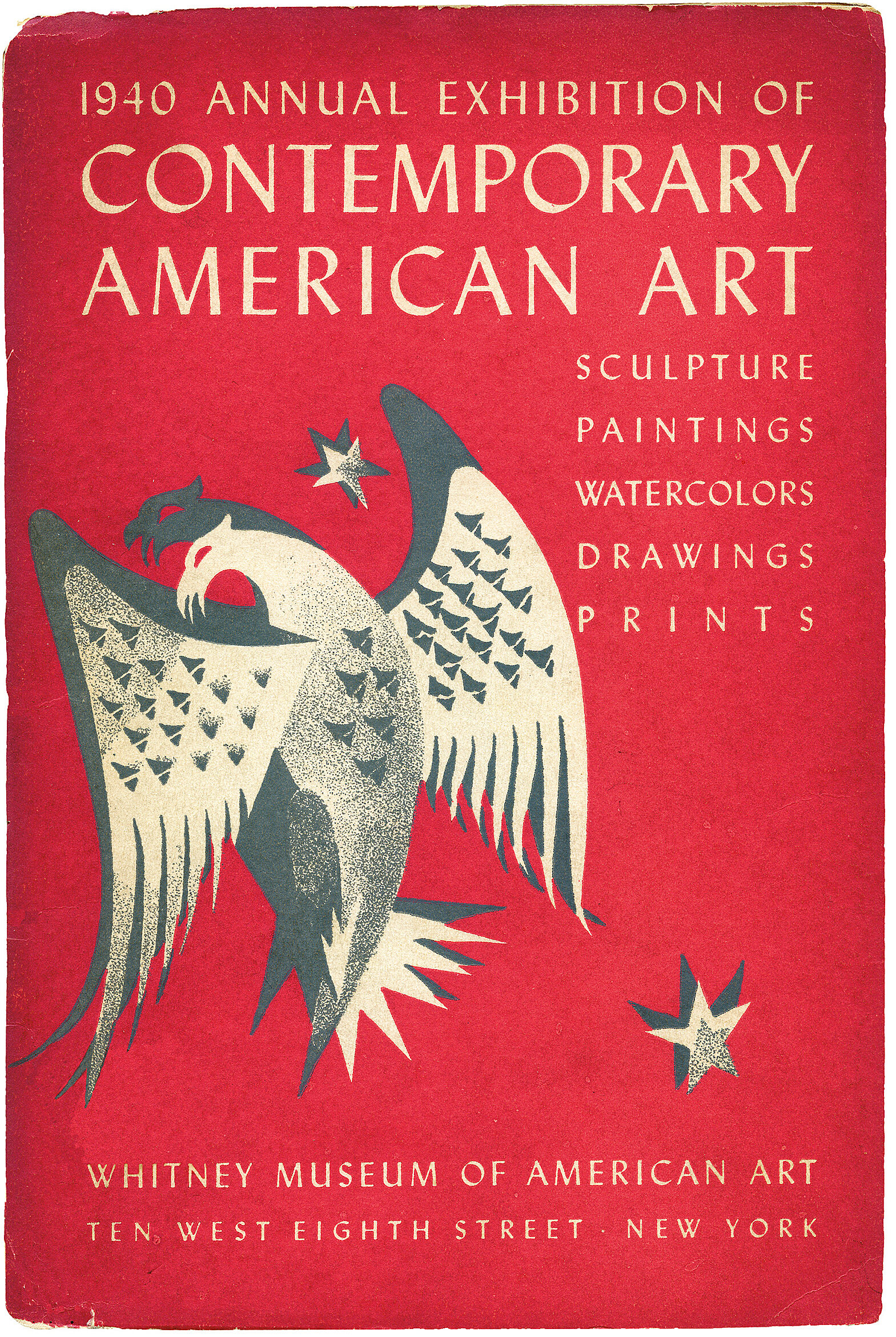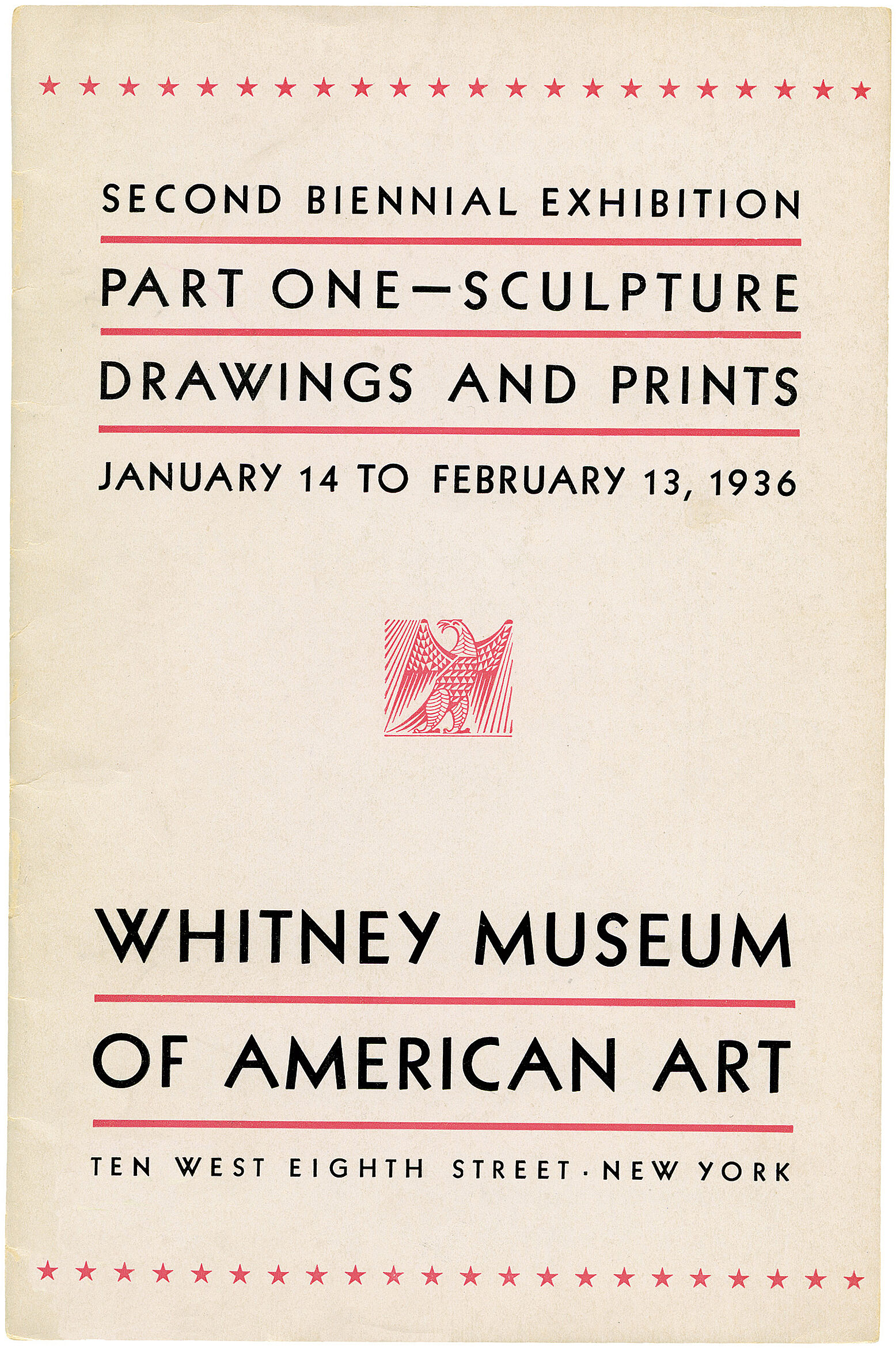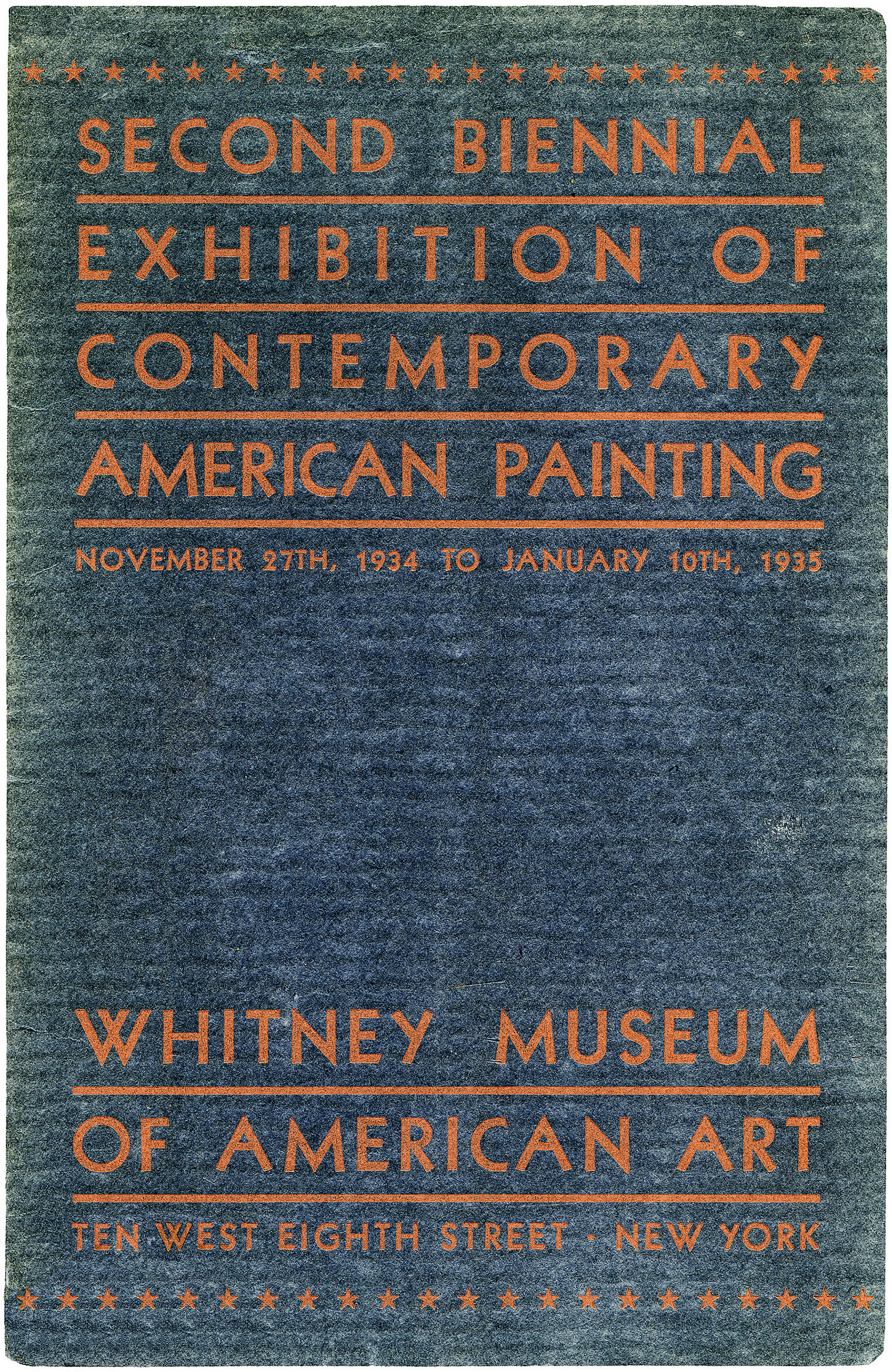Thomas Hart Benton
1889–1975
Thomas Hart Benton studied at the Art Institute of Chicago and lived in Paris and New York, but upon returning to his native Missouri in the mid-1930s he rejected the avant-garde art movements and urban themes of those centers for a folksy, nationalistic realism that he developed in paintings and murals. Together with the painters John Steuart Curry, Joe Jones, and Grant Wood, he became a leading exponent of American Regionalism. The roughened hands of the husband and wife depicted in The Lord Is My Shepherd testify to decades of hard work, and a Bible sampler on the wall affirms their faith. The couple assume a symbolic stature in this painting as emblems of a pious, simple life, though they were modeled on two specific individuals, Sabrina and George West. In Chilmark, the town where Benton summered for more than fifty years on Martha’s Vineyard, Massachusetts, a particular form of hereditary deafness was prevalent and affected the Wests, among many others of Benton’s neighbors.
Poker Night (from A Streetcar Named Desire) was a commission from producer David O. Selznick, a surprise gift for his wife, Irene Mayer Selznick, who produced the Tennessee Williams play on Broadway in 1947. The painting portrays a dramatic moment when the refined but fallen Blanche Dubois, holding a mirror and wearing a revealing gown, taunts her drunk, violent brother-in-law, Stanley Kowalski (pictured in a white undershirt). While Benton’s figurative style had remained relatively consistent over two decades, his subject here is more provocative and takes narrative liberties. Indeed, Jessica Tandy, who played Dubois onstage opposite Marlon Brando’s Kowalski, was offended by her portrayal in this painting—her costumes in the play had been considerably more demure.
Introduction
Thomas Hart Benton (April 15, 1889 – January 19, 1975) was an American painter, muralist, and printmaker. Along with Grant Wood and John Steuart Curry, he was at the forefront of the Regionalist art movement. The fluid, sculpted figures in his paintings showed everyday people in scenes of life in the United States.
His work is strongly associated with the Midwestern United States, the region in which he was born and which he called home for most of his life. He also studied in Paris, lived in New York City for more than 20 years and painted scores of works there, summered for 50 years on Martha's Vineyard off the New England coast, and also painted scenes of the American South and West.
Wikidata identifier
Q471764
Information from Wikipedia, made available under the Creative Commons Attribution-ShareAlike License . Accessed March 3, 2026.
Introduction
Benton was educated at the Art Institute of Chicago and at the Académie Julian in Paris. While in Paris he met artists such as Diego Rivera and Stanford Macdonald-Wright, who influenced his sensibilities. Benton moved to New York City ca. 1912 where he began exhibiting his works (then reminiscent of Synchromism), and fell under the influence of Marxism. In the early 1920s, his work began exploring American narrative themes utilizing highly stylized figurations and backgrounds. By the 30s, Benton was considered a Regionalist, and had been commissioned to paint the first of many murals, which spawned controversy because of their politics. Benton left New York City in 1935 and continued to paint socially conscious murals until the 1960s. American artist, born Mo. Comment on works: religious, allegory, genre
Country of birth
United States
Roles
Artist, cartoonist, designer, engraver, grisaillist, illustrator, lecturer, lithographer, muralist, painter, sculptor, theatrical painter
ULAN identifier
500005998
Names
Thomas Hart Benton, Benton, Tom Benton
Information from the Getty Research Institute's Union List of Artist Names ® (ULAN), made available under the ODC Attribution License. Accessed March 3, 2026.

